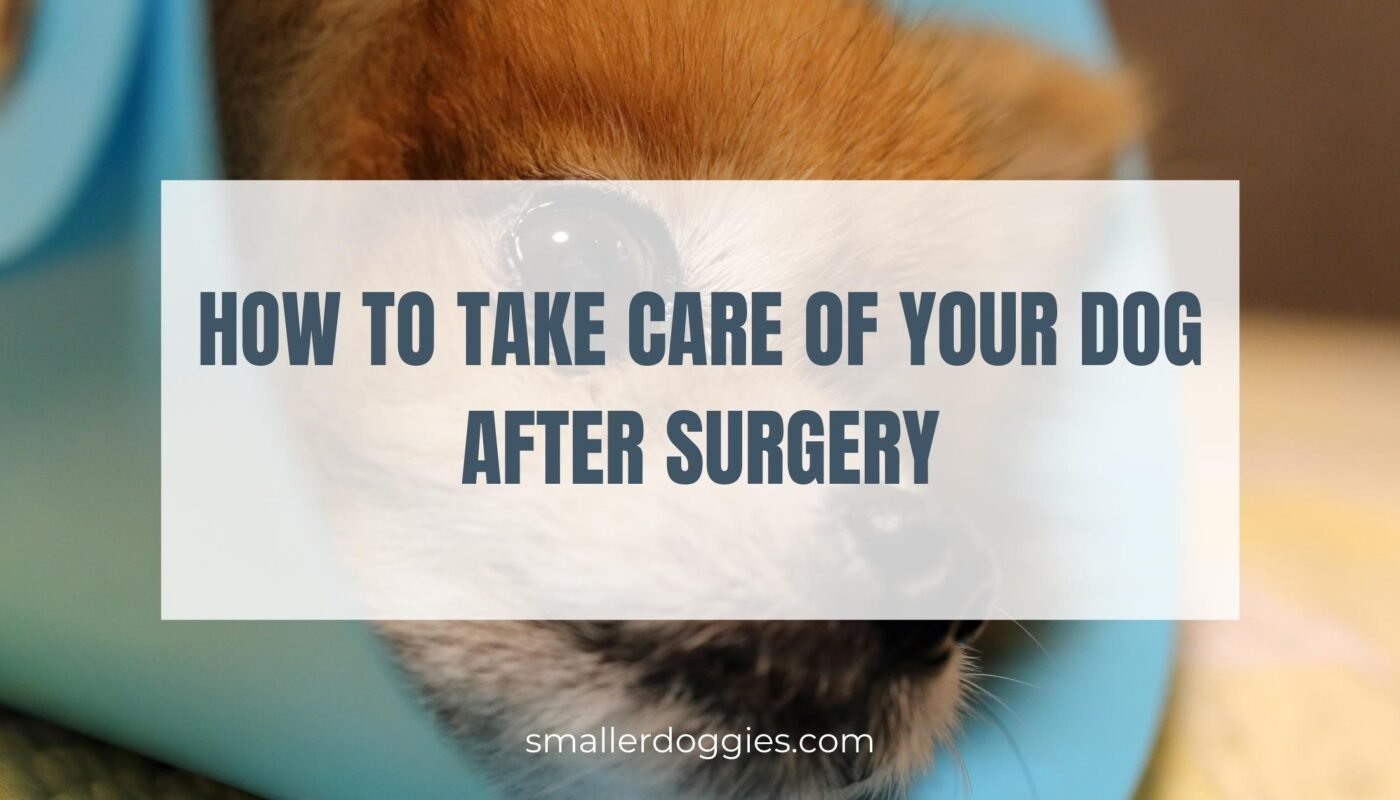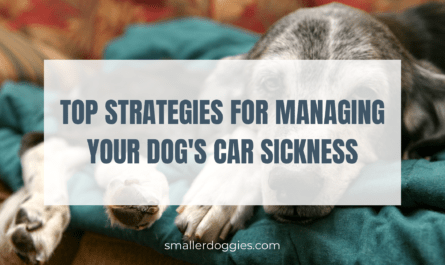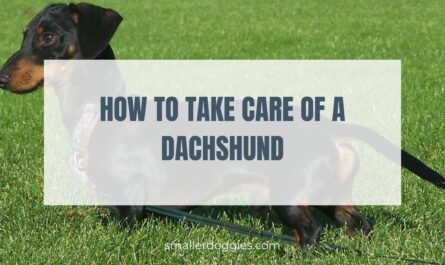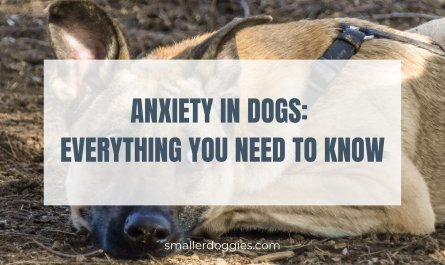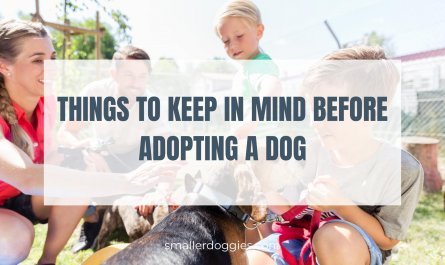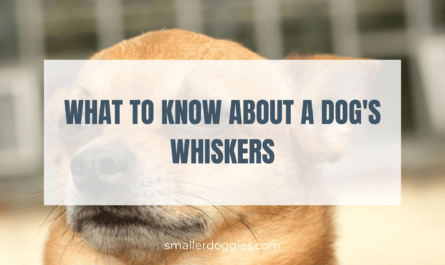Post Disclaimer
This post may contain affiliate links. If you use these links to buy something we earn a commission at no extra cost to you. Smaller Doggies is supported by its audience, Thank you!
It is scary when your furry friends have to undergo surgery. It can be stressful to experience, not just for your canine but for you too. While looking forward to taking your pet home after their surgery, you also need to know how to take care of them after they are done with the procedure.
Usually, your vet will guide you regarding the after-care, how to care for them after surgery, and how long it will take to recover. However, you need to know that taking good care of your doggy after an operation is essential to their recovery. So, it would help if you were gentle and careful with them.
Whether they’re a young puppy or an older dog, there are certain things you must do and avoid to ensure that their recovery goes as smoothly as possible.
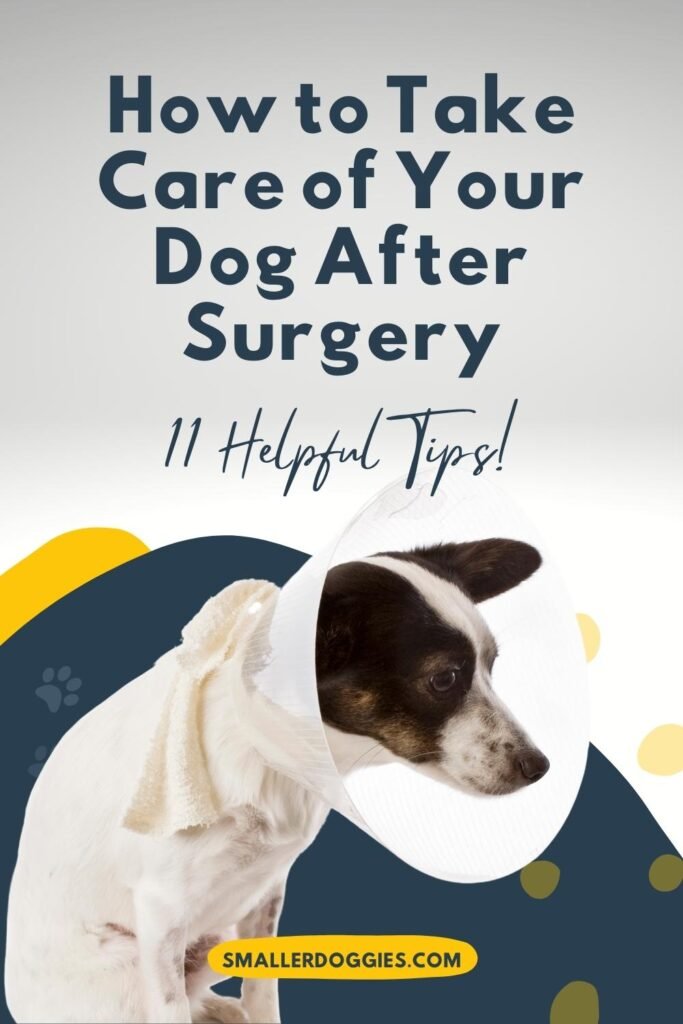
Here are 11 tips on how to take care of your dog after surgery
- Give them plenty of rest and space. After surgery, your dog will need to be kept calm and stable, so it mustn’t be disturbed by you or other people in the house.
- Keep a close eye on their pain and recovery levels. Constantly monitor how often your pet needs to go to the bathroom, whether they are drinking enough water, and if they are eating and sleeping well.
Follow a healthy diet plan for your dog. This means feeding them the right amount of food and ensuring that it’s high-quality, nutritious food that will help their body heal quickly and effectively. You may also want to consult with your vet about any supplements or vitamins that could be beneficial for your dog as they recover. - Avoid letting them lick or bite at their incisions. Keeping your dog from licking or biting at their incisions is essential as this can cause serious infections that could lead to further complications down the road.
- Ensure that they have access to plenty of water and food. Your dog may not feel like eating or drinking as much after their surgery, but it is crucial that they are well-hydrated and replenished.
- Give them lots of cuddles and positive reinforcement. Just because your dog is recovering from surgery doesn’t mean they don’t need your love and support. This is the time when they need it the most!
- Avoid strenuous activity. After surgery, your dog will need time to rest and heal, so it is vital to avoid any strenuous activity that could put undue stress on their body. Keep their activity level low. Try to avoid giving your dog too much exercise or anything that could put unnecessary strain on their body while recovering from surgery. This could include taking shorter walks, avoiding rough play with other dogs, and keeping them inside as much as possible.
- Keep an eye out for any signs of infection. Be sure to monitor your dog’s incisions for any redness, swelling, or discharge that could indicate an infection.
- Make sure they follow up with their vet appointments. To ensure a full and healthy recovery, you must take your dog to all of their post-op check-ups as scheduled by your vet.
- Take extra precautions to keep them safe. During their recovery, you must take extra precautions to keep your dog safe and prevent further injuries or accidents. This could include keeping them off slick surfaces, putting up a baby gate in some areas of the house, and removing small debris they may accidentally step on while moving around.
- Watch for any mood changes or unusual behaviors. During the recovery process after surgery, you must watch for any mood changes or unusual behaviors that could indicate a complication with your dog’s health.
- Stay calm and patient throughout their healing period. Your dog will be going through a lot during their recovery period, so staying calm and the patient is essential while healing. This will help them feel more comfortable and make their recovery easier.
Surgery is a scary time for both you and your dog. But with a little TLC, your pup will return to its old self in no time. Remember to keep an eye on your furry friend’s activity level, diet, and overall health during the healing process so that they can make a quick and complete recovery.
